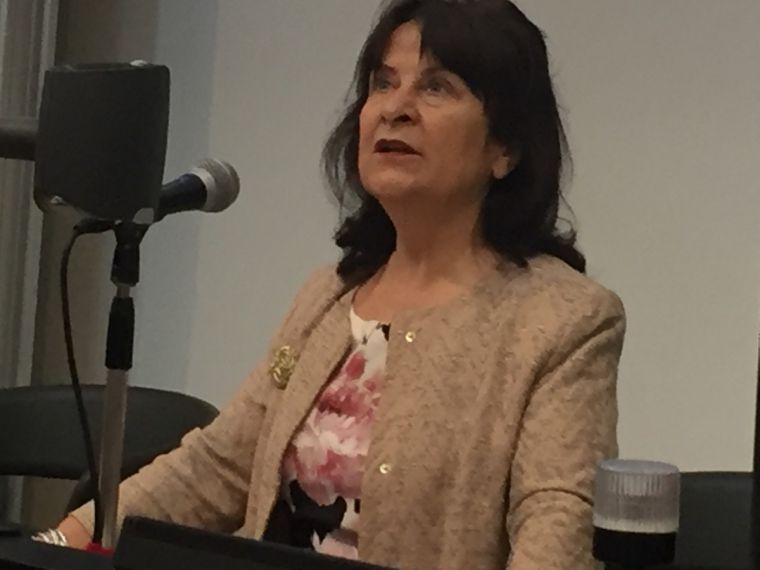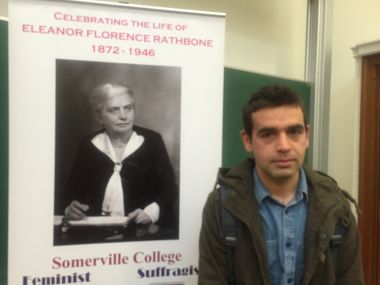Britain has a duty to help refugees says Christian human rights lawyer

Britain has a duty to help refugees fleeing the brutality of Islamic State and other terrors, according to leading human rights lawyer Baroness Helena Kennedy.
She also gave her backing today to the Remain campaign in the European Referendum debate.
Kennedy, a committed Christian from a Catholic background, countered the view that "we are sinking under the weight of refugees and they are clambering onto this island with hordes waiting to follow."
She also criticised the language used in the European debate.
"This campaign we have seen around the refugees has given us the most hideous diet, a horrible toxic brew."
Kennedy was speaking on World Refugee Day at a conference at King's College, London, called Welcome to Britain? Refugees then and now. It was organised in memory of the wartime "MP for refugees", Eleanor Rathbone, who campaigned vigorously to save Jewish people from Nazi persecution.
Kennedy, introduced by Maurice Wren, chief executive of the Refugee Council, said: "Refugees are not here because they want to steal our jobs. They are not part of the migrant story that is about wanting a better life and being paid more. They are here because they are seeking sanctuary."
She said society had a duty to provide sanctuary to those who are persecuted because they are part of our human family.
The conference heard powerful testimony from Ahmad al-Rashid, a Kurd from Iraq, who fled Aleppo in Syria after the massacre of 19 Yazidi women who were burned to death because they refused to live as sex slaves with their Islamic State captors.

He described paying human smugglers to get him to Turkey and from there to Greece then France where he spent two weeks in the Calais "jungle".
Those two weeks, he said, "were the worst two weeks of my life. No human should live there. It is such an inhuman place."
He was smuggled onto a lorry which he believed was heading to Britain. The lorry was full of flour and he and his fellow refugees almost "drowned" in its contents. Finally they banged on the walls to be let out, they were so frightened of dying. They found themselves nowhere near the UK but on the Italian border.
He finally made his way to Britain curled up in a car boot for days and landed in Grimsby. His story ends well. He filmed everything he went through and it is soon to be broadcast as a TV documentary. His family has joined him here from Syria and he has been given a scholarship to study at the School of Oriental and African Studies in London.
He said his home is now in Britain but his heart is still in Aleppo. He urged compassion for his fellow refugees.
"These people had homes. Now they are homeless. They had jobs. Now they are jobless. The only thing they have now is hope. Please do not make them hopeless."
As he spoke, Scotland's faith communities issued a joint statement to mark World Refugee Day.
"We offer our solidarity to those seeking sanctuary, and we encourage and commend faith communities who work with refugees to provide hospitality and to seek to build mutual understanding," they said.
"We urge the UK Government to adopt and develop its refugee and asylum policies based on hope and protection for the most vulnerable. We further call on the UK to take a fairer proportion of refugees wherever there is human need, and to develop safe and legal routes to the UK for those fleeing terror and war."











